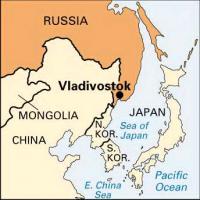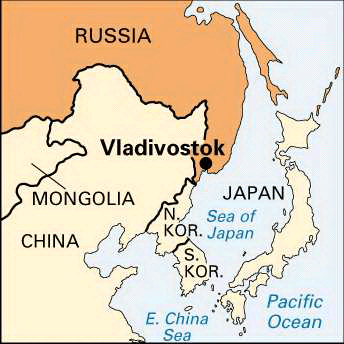 The Primorsky Territory in Russia – or you can call it the Primorsky Krai, whichever you prefer -is a mountainous region bordering China and Korea and is famous for having the world’s biggest population of wild Siberian Tigers. Fascinating tidbit, to say the least.
The Primorsky Territory in Russia – or you can call it the Primorsky Krai, whichever you prefer -is a mountainous region bordering China and Korea and is famous for having the world’s biggest population of wild Siberian Tigers. Fascinating tidbit, to say the least.
But by 2016, the Primorsky Territory could be known for something far different than home to an endangered feline. That’s because the Russian territory has set into motion the initial guidelines for a humongous casino zone in the port city of Vladivostok that, if everything goes according to plan, could rival any of the bustling casino towns in the world today, including Macau and Singapore.
To entice some of the biggest global casino operators to consider building their establishments in the area, the state-owned developer, Nash Dom Primorye, has invited these operators to make a bid on the project with promises of favorable lease terms, as well as zero taxes on gross gambling revenues serving as their bait on the proverbial line. Plans for the casino zone call for as many as 12 casinos to be built in the area in an effort to boost tourism revenues.
According to Reuters, interested bidders have until September 21 to submit their proposals where it will be reviewed by the government before discussions with the investors take place by the end of October.
The move to build a casino zone in a strategic location like the Primorsky Territory will allow Russia to gain access to a fast growing industry in Asia. In addition to Macau and Singapore, other countries like the Philippines, Vietnam, and even Taiwan are all racing to become a gambling hotspot in the region. Now, Russia wants in, too.
Considering that the area is a mere two hours away by plane from Seoul and Tokyo, the Primorsky Territory could become an ideal alternative to Macau, Singapore or the rest of the gambling hubs in the Southeast Asian region for a lot of people in East Asia. Even China, or at least the folks from the northern part of the country could have a new gambling location to go to instead of making the travel to Macau to scratch their gambling itch. And that’s not even taking into account all the folks from Russia, who as we know, isn’t exactly a country that’s lacking in population.
Potential goldmine, indeed.
While there is no maximum restriction on the amount of allowable casino gambling space in the area, one of the caveats is that the government wants companies to make non-gambling revenues a top priority that makes up a large proportion of the total revenues. It’s a model that’s strikingly similar to Las Vegas, which has become a popular destination for conventions and sporting events.
When completed, the casino zone could end up having plenty of entertainment options, including luxury hotels, shopping malls, golf courses, and even a yacht club. Revenue targets have been placed at anywhere from $2 billion to $ 7 billion, a range that’s still a ball park away from what Macau does but is right in the neighborhood of the $5.7 billion revenue that Singapore was able to earn in 2011.
